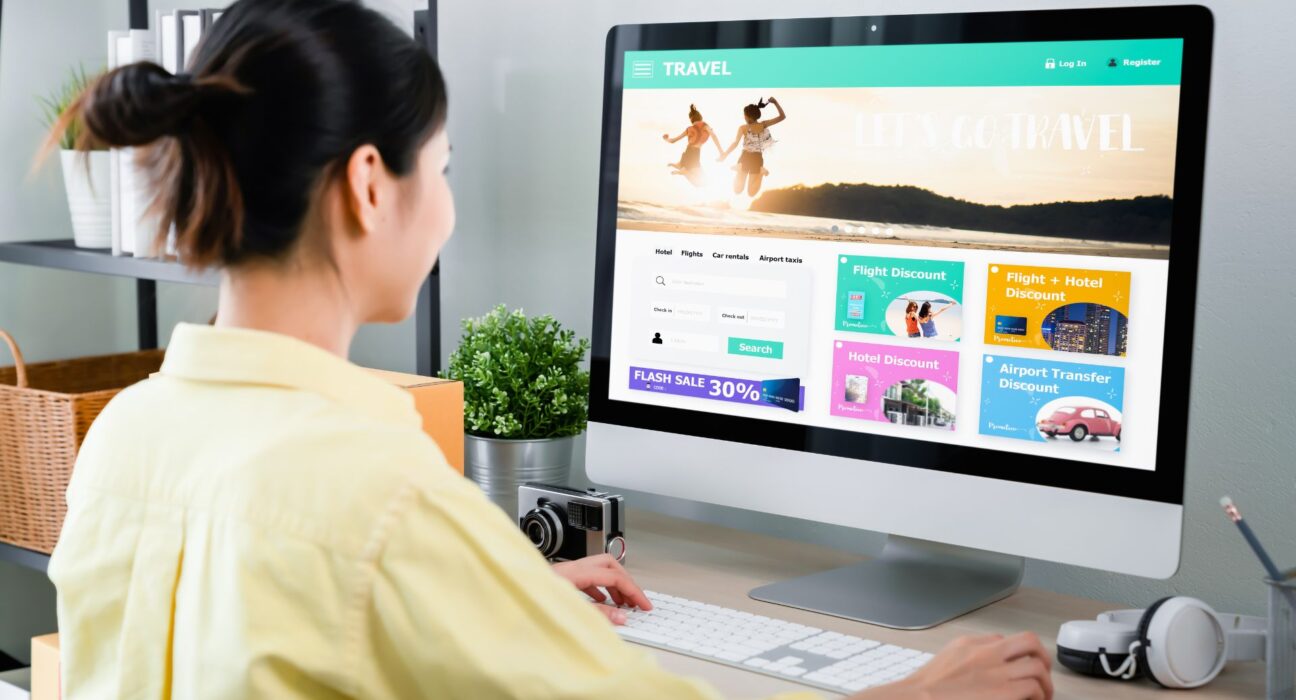I’ve built several websites and thankfully there are several ways to build a great one. You can do it yourself through Wix, Zoho, Squarespace or WordPress. Or you can hire a web developer. RamonRay.com is built on Wix, other sites I’ve built are on WordPress.
Having a website is essential for any small business or entrepreneur. It serves as your online presence, allowing potential customers and clients to find you and learn more about your products or services. However, building a website can be a daunting task, especially for those who have little to no experience in web development. There are many tools, however, that do make it quite easy.
Related: How to make your website work for you?
Who is Your Audience and What’s Best for Them?
Before starting on your website, it’s important to identify your target audience. What do they need? What information are they looking for? Once you’ve identified your audience, decide what type of website is best suited for them. Do they need a website that’s simple and straightforward like a digital business card? Or, do they need a website that’s feature-rich, with an eCommerce store and booking functionality? It’s important to cater to your audience’s needs to ensure a successful online presence.
Easy Contact Information
Make sure your contact information is easily accessible to your visitors. This includes your email address, phone number, and physical address. It’s best to place this information in the header or footer of your website so it’s visible on every page.
Clearly Explains What Your Business Does
Visitors should know exactly what your business does within seconds of landing on your website. Make sure your homepage clearly explains what you do and how you can help your visitors. Use clear and concise language and avoid industry jargon.
Secure – Hackers Want to Take Your Website Down or Steal Information
Website security is vital in protecting your business and customers. Make sure your website is secure by using HTTPS encryption, strong passwords, and keeping your website’s software up-to-date. If you’re unsure about website security, consult with a web developer.
How to Build It
There are two options for building your website: using a website builder template or hiring a web developer. Website builders like Wix, WordPress, Squarespace, and Zoho offer easy drag-and-drop templates and affordable pricing plans. However, if you need a more customized website, hiring a web developer may be necessary. Be aware that hiring a web developer can be expensive and time-consuming. It’s important to research and choose a reputable developer.
Hiring a Web Developer vs Do It Yourself
Hiring a web developer has its advantages, such as a more professional-looking website and personalized customer support. However, it also comes with disadvantages such as high costs and longer website development times. If you decide to build your website yourself, website builder templates offer an affordable and easy-to-use option.
Mobile Ready (Easy to View on a Smartphone)
More and more people are accessing websites through their smartphones. It’s important to ensure your website is mobile-friendly and easy to navigate on smaller screens. Check that your text is easy to read and buttons are easily clickable.
Building your first website may seem like a daunting task, but with the right tools and guidance, it’s a manageable task. Remember to identify your target audience, keep your contact information visible, use clear and concise language, secure your website, and ensure it’s mobile-friendly. Whether you choose to use a website builder or hire a web developer, your online presence can make all the difference in the success of your business.
Search Engine Optimize is Important
Write effective and keyword-rich meta titles and descriptions.
Meta titles are the words that appear in search engine results pages (SERPs) as the clickable headline for each result, while meta descriptions provide a brief summary of what visitors can expect to see if they click through to your website. Using targeted keywords within these elements will help search engines identify what your website is all about and provide more relevant results.
Use relevant keywords throughout your content, headings and titles.
Your page content should be written in a way that allows search engine spiders to understand which topics are being discussed, as well as the meaning behind them. Sprinkle a few of the targeted terms throughout your content, as well as use them in your headings and titles so search engine algorithms can accurately rank your website.
Incorporate internal linking into your website.
Links are hyperlinks that direct from one page on a to another page on the same domain. This type of link is important for SEO, as it helps Google understand the structure and hierarchy of your website. Additionally, internal linking can keep visitors on your page longer by providing them with more opportunities to explore related content.
Optimize your images for SEO.
Images are often overlooked when it comes to SEO but they should not be ignored. Make sure all images used on your website are optimized with descriptive alt-text and captions. This will help search engines understand what the images are about, which can result in higher rankings.











